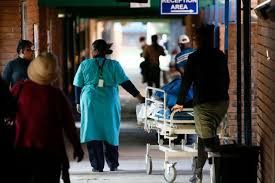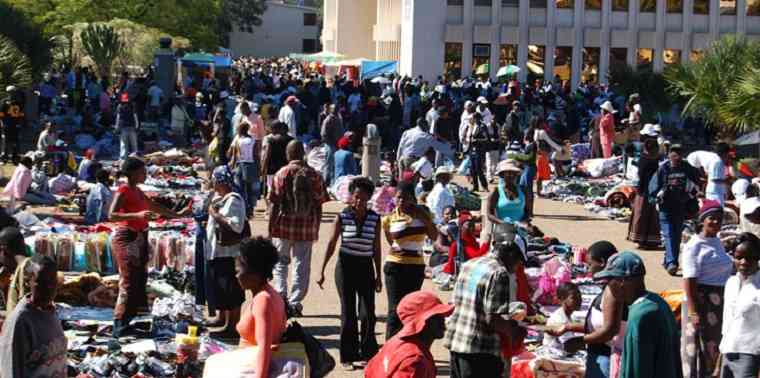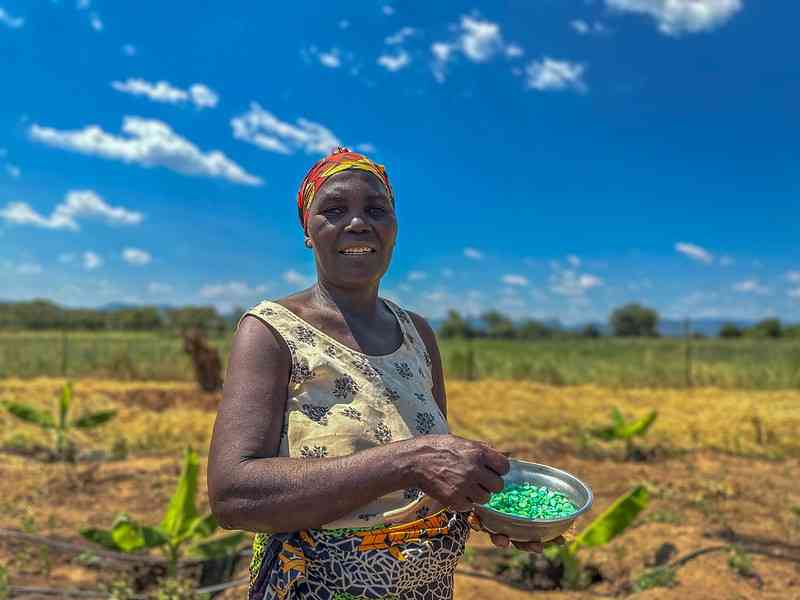
Good health is the bedrock of a thriving society, a measure of policy and well-being.
Yet, decades of underinvestment and underperforming economies have left healthcare systems across sub-Saharan Africa, including Zimbabwe’s, struggling to meet the needs of their populations.
This critical situation often forces individuals to seek care beyond their borders, with South Africa becoming a primary destination.
The “low prioritisation of healthcare in the policy hierarchy" in sub-Saharan Africa, a reality that hits close to home for many.
Years of economic challenges, insufficient public expenditure on health, and the resulting "brain drain" of medical professionals have decimated Zimbabwe's once-robust healthcare infrastructure.
Firstly, the lack of essential medicines is a pervasive issue. Pharmacies across affected areas often stock shelves that are tragically empty, or if critical medications are available at all, their prices are prohibitively expensive, turning essential treatments into unaffordable luxuries for the vast majority.
Consequently, treatable conditions escalate into life-threatening emergencies.
Secondly, the physical infrastructure of public health facilities paints a lamentable picture. Dilapidated facilities are the norm, not the exception.
- ‘Zec refuses to release voters roll’…Mangwana, Silaigwana evasive
- In Full: Nineteenth post-cabinet press briefing: July 05, 2022
- Health talk: Be wary of measles, its a deadly disease
- Harare man ordered to pay US$100K in adultery damages
Keep Reading
Public hospitals, once cornerstones of community health, frequently lack even the most fundamental equipment – from basic surgical tools and life-saving ventilators to reliable clean water and even functional beds.
Such deplorable conditions not only hinder effective treatment but also strip patients of their basic comfort and privacy.
Furthermore, this crisis is compounded by a severe shortage of qualified staff. Doctors and nurses, often underpaid and overworked to the point of exhaustion, have been compelled to seek better opportunities in more stable economies abroad.
This relentless brain drain siphons away vital expertise, leaving an already strained system critically understaffed and unable to cope with the demand for care.
In this dire context, crossing the Limpopo River, a significant and often perilous journey, is not a choice of convenience or preference for many. Instead, it transforms into an act of profound, existential necessity. It is a desperate pursuit of a basic human right – the right to health – within a system perceived as more capable, even amidst its own inherent challenges. This migration is a testament to the unendurable pressures faced by those left with no other viable recourse to medical care.
Against this backdrop of severe healthcare deficiencies in neighboring states, South Africa, with its comparatively more developed economy and established healthcare infrastructure, naturally emerges as a primary beacon of hope and a destination for those seeking medical care.
However, this perceived sanctuary is itself under immense, multifaceted strain.
A significant contributing factor is the global trend of neoliberalisation of healthcare, which entails a systemic shift towards private provision and a corresponding reduction in public spending.
This policy, unfortunately, leads directly to "structural segmentation and fragmentation" within the healthcare system, exacerbating existing vulnerabilities. The tangible effects of this approach are evident across the nation:
Firstly, overburdened public hospitals bear the brunt of this pressure. South Africa's public health facilities, already grappling with the complex healthcare needs of a significant portion of its own population, are now experiencing unprecedented demands.
The influx of patients from neighboring countries, while understandable from a humanitarian perspective, stretches resources perilously thin.
Consequently, long waiting queues, overcrowded wards often operating beyond capacity, and overwhelmed, exhausted medical staff have become a regrettable daily reality across the public health sector.
Secondly, the nation grapples with complex resource allocation challenges.
The "healthcare funding gap bedevilling the region" is not merely an external issue; it deeply impacts South Africa as well.
Despite allocating more resources to healthcare than many of its neighbours, the nation still faces agonizing decisions regarding where to direct scarce funds, often necessitating compromises that impact service delivery and quality of care for everyone.
Finally, the stark and growing private vs. public divide further complicates the landscape.
While South Africa boasts a robust and advanced private healthcare sector, its exorbitant costs render it prohibitively expensive for the vast majority of the population, including most Zimbabweans desperately seeking care.
This inequity exacerbates social and health disparities, funneling an ever-increasing number of patients into the already strained public facilities, which remain the only viable option for many, irrespective of their nationality.
It is within this fraught and complex healthcare landscape – characterized by regional disparities, resource scarcity, and internal systemic pressures — that the “Dudula” campaign, a movement primarily advocating for the prioritisation of South African citizens in service delivery, has found a potent focal point in public hospitals.
Their rationale, often articulated amidst heightened anti-immigrant sentiment, stems from a perception that foreign nationals, particularly those from neighboring countries like Zimbabwe, are unduly burdening an already strained public healthcare system.
This, they argue, directly deprives South African citizens of timely and adequate access to essential medical care.
From the campaign's perspective, the visible presence of non-nationals in public hospital queues and wards serves as tangible proof of perceived unfairness in resource allocation.
Consequently, members of the Dudula campaign have, on occasion, directly confronted patients and healthcare workers at hospital entrances and even within facilities, demanding proof of nationality or residency.
This aggressive form of 'border patrol' within medical institutions aims to deter non-nationals from seeking care and to pressure authorities into enforcing stricter access controls based on citizenship.
This approach, however, has ignited fierce debate and drawn widespread condemnation.
Critics argue that such actions not only violate fundamental human rights — particularly the right to emergency medical treatment, regardless of nationality – but also create an environment of fear and intimidation that is antithetical to the very principles of compassionate healthcare.
Furthermore, healthcare workers, already under immense pressure, are placed in an impossible ethical dilemma, often caught between their professional obligations to treat all in need and the escalating social tensions fueled by these campaigns.
Moreover, the targeting of hospitals risks further fragmenting social cohesion and undermining the very infrastructure designed to serve the most vulnerable members of society.
It transforms medical facilities, traditionally places of healing and sanctuary, into sites of xenophobic confrontation, thereby exacerbating the challenges faced by both patients and service providers.
The complexities of regional migration, resource scarcity, and historical inequalities converge vividly in the corridors of South Africa’s public hospitals, making them a crucible for these socio-political tensions.
The challenges faced by Zimbabweans seeking healthcare in South Africa are not isolated incidents; they are symptoms of a larger, systemic issue of underinvestment in public health across the sub-Saharan region.
The "Health-Led Growth Hypothesis" posits that investing in healthcare isn't just a social good, but a powerful catalyst for economic growth. When people are healthy, they are productive, contributing to economies and building stronger societies.
For patients, this is a call for resilience, preparation, and understanding. For healthcare providers, it's a plea for continued compassion, cultural sensitivity, and advocacy for better resourcing.
And for policy makers across the region, it is an urgent reminder: until healthcare is truly re-prioritised and robustly funded in every nation, the strain on neighbouring systems will persist, and the fundamental right to health will remain tragically out of reach for too many.
- *Nyawo* is development practitioner, writer and public speaker
- These weekly articles are coordinated by Lovemore Kadenge, an independent consultant, managing consultant of Zawale Consultant (Private) Limited, past president of the Zimbabwe Economics Society and past president of the Chartered Governance & Accountancy Institute in Zimbabwe. Email: [email protected] or Mobile No. 263 772 382 852.











